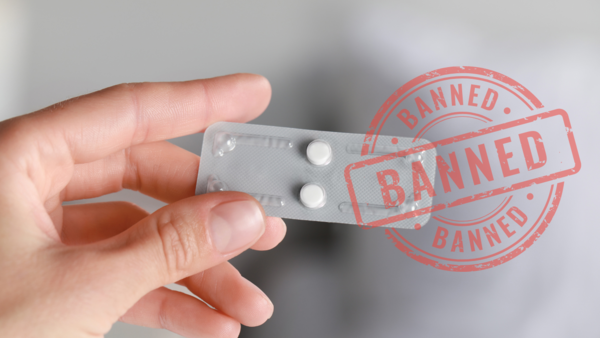It is frequently consumed in most developed countries, but introduced in India in 2002, ECP can prevent pregnancy if taken within 72 hours of unprotected sex. however, Central Drugs Standard Control Organization (CDSCO) is considering recommending a ban on over-the-counter sale of all hormonal contraceptive drugs, including emergency contraceptive pills (ECP) a sub-committee constituted by CDSCO Is preparing to suggest changes to the Drugs and Cosmetic Rules of 1945 to classify these drugs prescription only,
The report of the panel will be submitted soon. Currently, the Drug Controller General of India (DGCI) allows the sale of Levonorgestrel Tablets 0.75 mg without prescription as an emergency contraceptive under the National Reproductive and Child Health Programme.
Access to ECP and others hormonal contraception Over the counter is already difficult in many parts of India, including Tamil Nadu. The sub-committee is inclined to make physician prescriptions for these contraceptives mandatory. The doctor must assess the benefit and risk ratio for the person taking it. The issue was discussed and the general consensus was that there should be some restrictions and some regulation is needed on the sale of the pill.
Side effects of taking the morning after pill
Common minor adverse effects of emergency contraceptive pills include the following:
lower abdominal pain or cramps
vomit
nausea
Headache
Tiredness
Dizziness
Heavy menstrual bleeding or bleeding between periods
pain or tenderness in the breasts
Spotting: After using the emergency contraceptive pill for a week, you may experience some spotting. Your next period may also be earlier or later than usual, heavier or lighter. However, call your doctor if bleeding seems severe and does not stop. The period change may last for a few cycles.
Irregular menstrual cycles: It is normal for your period to be a little early or late as a result of the emergency contraceptive pill. However, if your period does not come within two weeks of the expected date, you should get a pregnancy test.

Do over-the-counter contraceptive medications result in infertility?
The emergency contraceptive pill (ECP) will not affect your fertility, nor will it prevent you from getting pregnant in the future. Still, using ECP repeatedly or more than once may interfere with your hormones and, as a result, disrupt your menstrual cycle, leading to an inability to ovulate. Additionally, continued ECP use may lead to irregular and unpredictable menstruation. That being said, ECP is not recommended as a long-term method of birth control because it is less effective at preventing pregnancy than other birth control methods like the IUD, patch, pill, ring, or shot.
Can a woman taking the morning after pill get pregnant?
It’s true that taking morning after pill Which may result in pregnancy. First of all, even if taken correctly as prescribed within 72 hours, the morning-after pill has a 10-13% chance of failure. Second, you will be protected by the pill only for sexual activity that you have done up to 72 hours before taking it. If you take the pill 72 hours after unprotected intercourse, it may not help you avoid pregnancy.
Are emergency birth control pills dangerous?
Because emergency contraceptive pills are less effective than other regular types of contraception, they are not recommended for regular use. Additionally, the emergency contraceptive pill (STI) cannot prevent sexually transmitted infections.
It is not recommended that everyone use emergency contraceptive pills. The emergency contraceptive pill should not be taken if:
You are allergic to one or more of the ingredients in the emergency contraceptive pill.
You are taking medicine that may reduce the effectiveness of the emergency contraceptive pill. As do omeprazole, various antacids, and certain antibiotics, including rifampicin.
There are indications that the emergency contraceptive pill may not be as effective in preventing pregnancy in obese or overweight individuals as it is in the non-obese.
What do gynecologists say about restrictions?
Opinion is divided among gynecologists. Some gynecologists support a ban, citing potential adverse effects such as pulmonary embolism, nausea and irregular bleeding.
In contrast, many gynecologists believe that ECPs should remain OTC to prevent unwanted pregnancies and illegal abortions. Many women will be unable to consult a doctor in time. Making it a prescribed drug would lead to more illegal abortions and unwanted pregnancies. Doctors recommend that women should consult a gynecologist within three days of taking ECP.
While many argued that the ban would harm women’s reproductive and sexual health rights. Many people will not have access to doctors to get prescriptions. They may also struggle to pay doctors’ consultation fees. Many practical difficulties will arise.
Why is copper T rip bad?

















